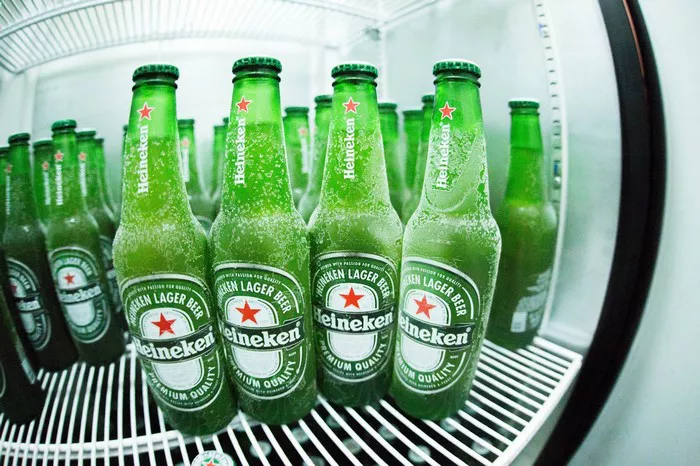Port wine, a beloved fortified wine renowned for its rich flavors and history, has captivated connoisseurs for centuries. Its name evokes images of lush vineyards, centuries-old cellars, and the rich maritime heritage of Portugal. But how did this esteemed beverage acquire its distinctive name? Delving into the annals of history reveals a fascinating journey of trade, geography, and cultural exchange. From its humble beginnings in the Douro Valley to its global acclaim, the story of how port wine got its name is a testament to the enduring legacy of this cherished libation.
The Birth of a Tradition: Early Origins and Influences
To understand how port wine earned its name, we must first trace its origins to the rugged terrain of the Douro Valley in northern Portugal. Dating back to the 17th century, this region became the epicenter of port production, thanks to its favorable climate and unique grape varietals. However, the name “port wine” did not emerge until much later, with its roots intertwined with the bustling port city of Porto.
The Connection to Porto: A Tale of Trade and Transportation
The name “port wine” finds its origins in the bustling city of Porto, which served as a vital hub for the exportation of wines from the Douro Valley to markets around the world. In the 17th century, British merchants developed a taste for the robust wines of the Douro, leading to a surge in trade between Portugal and England. To meet the growing demand, Portuguese winemakers began fortifying their wines with brandy, a process that not only preserved the wines during long sea voyages but also enhanced their flavor and longevity.
A Fortuitous Discovery: The Role of British Merchants
It was during this period of burgeoning trade that the term “port wine” first emerged. British merchants, enamored with the rich, fortified wines of the Douro Valley, began referring to them as “porto” or “port” wine, in reference to their city of origin. This nomenclature not only distinguished these wines from others but also cemented the connection between Porto and its prized export.
See Also: The Difference Between Champagne and Prosecco: A Comprehensive Guide
Royal Approval: The Influence of British Royalty
The popularity of port wine continued to soar, buoyed by endorsements from British royalty and nobility. In the 18th century, the English Crown imposed hefty tariffs on French wines, leading to a surge in demand for Portuguese alternatives. Port wine, with its bold flavors and unique character, quickly became the libation of choice among the elite, further solidifying its reputation on the world stage.
The Marquis of Pombal: A Champion of Quality and Authenticity
As port wine gained traction in international markets, concerns arose regarding its quality and authenticity. In response, the Marquis of Pombal, a statesman and reformer, enacted measures to regulate port production and protect its reputation. His efforts laid the groundwork for the establishment of the Douro Wine Company in 1756, a pioneering initiative aimed at ensuring the quality and authenticity of port wine through strict regulations and oversight.
The Douro Demarcation: Defining the Boundaries of Port Production
One of the most significant developments in the history of port wine was the establishment of the Douro Demarcation in 1756. This landmark decree delineated the boundaries of the Douro Valley, designating it as the exclusive region for port wine production. By defining strict geographical limits and regulations, the Douro Demarcation ensured that only wines produced within its borders could bear the coveted title of “port,” safeguarding the integrity of the appellation for generations to come.
A Global Phenomenon: The Spread of Port Wine Across Continents
With its reputation firmly established, port wine embarked on a journey of global expansion, finding eager consumers in markets across Europe, the Americas, and beyond. From the taverns of London to the salons of Paris, port wine became synonymous with elegance, sophistication, and conviviality. Its versatility and longevity made it a favorite among explorers, traders, and diplomats, who carried bottles of port on their voyages to distant lands.
Innovation and Evolution: Modern Trends in Port Production
While rooted in tradition, the world of port wine continues to evolve, embracing innovation and modern techniques to meet the demands of contemporary consumers. From single Quinta vintages to experimental blends, winemakers are pushing the boundaries of port production, exploring new terroirs, grape varietals, and aging methods. Yet, amidst these innovations, the timeless allure of port wine remains unchanged, a testament to its enduring legacy and enduring appeal.
Preserving Tradition: The Role of Heritage and Heritage
As port wine continues to thrive in the 21st century, efforts to preserve its rich heritage and traditions have taken on renewed importance. From the preservation of historic vineyards to the rest oration of centuries-old cellars, initiatives aimed at safeguarding the cultural legacy of port wine are underway. By honoring its past while embracing the future, the port wine industry ensures that future generations will continue to savor the fruits of this timeless tradition.
Conclusion: A Toast to Tradition and Innovation
In conclusion, the name “port wine” is more than just a label; it is a symbol of centuries-old tradition, innovation, and cultural exchange. From its humble origins in the Douro Valley to its global acclaim, the story of how port wine got its name is a testament to the resilience and ingenuity of generations of winemakers, merchants, and enthusiasts. As we raise our glasses to this beloved libation, let us celebrate not only its storied past but also its promising future, filled with endless possibilities and discoveries yet to be made. Cheers to port wine, a timeless treasure cherished by connoisseurs around the world.


